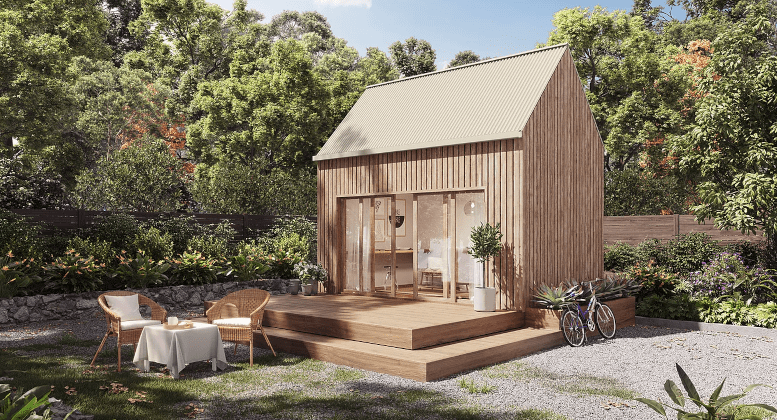A two-year study in Pennsylvania will look at the life cycle of hemp derived building materials from the field to the build by collecting plant growth and supply-chain data.
The research, funded with $70,160 from the state’s Specialty Crop Block Grant program, will track hemp yields and carbon capture achieved through different farming methods, then monitor indoor air quality and other performance variables in a 140-square foot timber-framed model structure.
Partnership
The model, to be built at Reading-based Alvernia University’s Bog Turtle Creek Farm in Kenhorst, Pennsylvania, is being supplied by Coexist, an architecture firm that sells a do-it-yourself hempcrete-based cabin kit, and makes hemp blocks and hemp blanket insulation. Coexist and Alvernia University are partners on the study.
Alicia Sprow, assistant professor of leadership studies & health care science, and sustainability initiatives coordinator at the Alvernia’s Holleran Center for Global and Community Engagement, is supervising two students, Ethan LaVerdure and Alex Kabrich, in the research project.
Funding hits $230,000
A previous round of funding in Pennsylvania gave grants totaling $160,000 to two hemp-oriented projects. The most recent award brings the total for hemp initiatives to roughly $230,000 from the block grants program.
The Specialty Crop Block Grants are funded under the Pennsylvania Farm Bill. The awards support development of high priority specialty crops that are not eligible for funding under the federal specialty crop grant program. In addition to hemp, such crops include hops, hardwoods, honey, barley, rye and wheat intended for distilling, brewing and malting.
Projects funded under the block grants aim to enhance the competitiveness and sustainability of specialty crops through research, with the goals of enhancing food safety, developing new and improved seed varieties, and improving pest and disease control, according to state agriculture officials.

